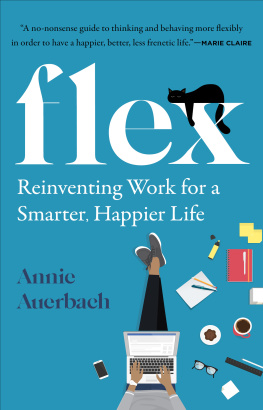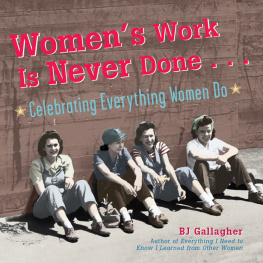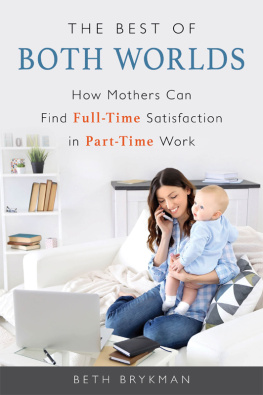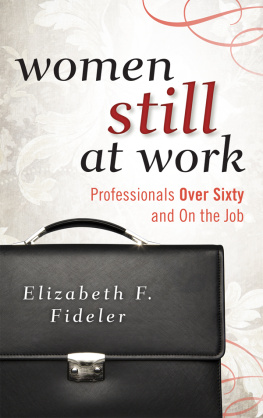

First published in Great Britain in 2018 by
Bristol University Press University of Bristol 1-9 Old Park Hill Bristol BS2 8BB UK Tel +44 (0)117 954 5940 www.bristoluniversitypress.co.uk
North American office: Policy Press c/o The University of Chicago Press 1427 East 60th Street Chicago, IL 60637, USA t: +1 773 702 7700 f: +1 773-702-9756 e:
Bristol University Press 2018
British Library Cataloguing in Publication Data
A catalogue record for this book is available from the British Library
Library of Congress Cataloging-in-Publication Data
A catalog record for this book has been requested
ISBN 978-1-5292-0203-8 paperback
ISBN 978-1-5292-0202-1 hardcover
ISBN 978-1-5292-0206-9 ePub
ISBN 978-1-5292-0207-6 Mobi
ISBN 978-1-5292-0204-5 ePdf
The right of Zoe Young to be identified as author of this work has been asserted by her in accordance with the Copyright, Designs and Patents Act 1988.
All rights reserved: no part of this publication may be reproduced, stored in a retrieval system, or transmitted in any form or by any means, electronic, mechanical, photocopying, recording, or otherwise without the prior permission of Policy Press.
The statements and opinions contained within this publication are solely those of the author and not of The University of Bristol or Bristol University Press. The University of Bristol and Bristol University Press disclaim responsibility for any injury to persons or property resulting from any material published in this publication.
Bristol University Press works to counter discrimination on grounds of gender, race, disability, age and sexuality.
Cover design by blu inc, Bristol
Front cover image: istock
Readers Guide
This book has been optimised for PDA.
Tables may have been presented to accommodate this devices limitations.
Image presentation is limited by this devices limitations.
Incredibly useful to empathise with real mums succeeding in real jobs as well as to garner very practical insights based on real evidence. Stephen Frost, f(i) and author of The inclusive imperative
Ive been juggling paid work and caring for children for over 25 years, so this book speaks to me in a big way. What Ive learned is that there is no single way to do it but there are some gems of wisdom which we can pass on and this is what Womens Work does so effectively. Sam Smethers, Chief Executive of The Fawcett Society
For Kevin, Freddie and Maisie. Thank you for our own stresses and successes. This is for you with all my love.
Contents
The preface to my yellowing and rather fragile copy of Ann Oakleys (1974) text Housewife opens with a punchy statement:
First of all this is a book about women . It is not a book about marriage or the family, and it does not aim to look at the situations of men and women equally
When Oakley wrote Housewife , womens lives and labours had traditionally received very little sociological or historical attention. She wanted to redress the balance and give scholarly focus to womens unpaid labour in the home. Oakley was writing in the 1970s, the decade of my birth, and at that time the feminine ideal that women seek fulfilment through heterosexual marriage, motherhood and housewifery dominated modern industrialised societies. Men worked. Housework was not considered work and therefore was largely invisible. Today few women would describe their primary occupation as housewife. Although the job title might have changed, plenty of evidence points to stubborn resistances to the housewife role being anything other than feminised, private and undervalued. Women today work inside and outside the home, as indeed they have throughout history. We just study them a little more and talk about them a lot more today.
Inspired by Oakley this too is a book about women, women who are mothers and professionals in the second decade of the 21st century. Women who work. Womens work. The research that informs it draws on the lives and experiences of 30 women who might be referred to as working mothers or career women. Just as the housewife moniker feels a little dated today, the alternative descriptors for the lives and experiences in focus in this book feel almost as awkward and ill-fitting. Working mothers manages to dissociate paid work from the significant domestic, emotional, mental and physical work of motherhood; career women somehow narrows womens multiple identifications and minimises the maternal. I have settled on professional mothers to refer, not to womens approaches to their mothering, but to their dual roles and to their occupational positioning. All these labels sound a bit odd because it would not occur to us to differentiate categories of men in the same way and talk about career men, working fathers or professional fathers. The clunky discourse serves to highlight the enduring inequalities.
This is not a personal book in the autobiographical sense, but the research that informs it formed out of my own experience and from conversations with other women: conversations with colleagues in snatched moments in the office and with other mothers at the school gates. On rare and warmly welcomed evenings out with friends we would chronicle our personal quests for worklife balance and the ups and the downs of putting our lives and selves together as mothers, as partners, as daughters and sisters, and professionals. As well as supporting each other we were forming, informing and justifying our own approaches through our talk. Women worry about being good enough as workers and as mothers. My hope is that this book and the insight it gives into other womens lives offers some context and perspective to those concerns.
Worklife balance, and flexible working as means to achieve it, were not around when Oakley was researching and writing about housewives. The experience shared by the mothers in focus in this book is their move into part-time work, into job-shares, to compress and adjust their schedules, and to work from home and other places. These are ways of doing and being both a professional and a mother. To look at the freedoms women have to choose the way they combine motherhood with professional work implies a necessary focus on gender, on power and on equality both inside the family and inside the workplace. In sociological terms this is a study of social change viewed from the inside out by studying individuals in change through a year in their lives and from their point of view.
Today more and more women and men work flexibly in a range of ways, so why do I focus on mothers? Because it is overwhelmingly women who continue to be positioned as responsible for children and family care, and who achieve different, less advantageous labour market outcomes because of it. Mothers of young children dominate part-time work, which tends to be clustered at the lower, less well-rewarded occupational levels, and women are missing in representative numbers from the top well-paid tiers of organisational and political life. These are urgent social and economic problems in search of solutions that must not rely on the effort of women alone.
Thirty women who shared their stories with me made this study. It was a pleasure to meet you and I am indebted to you all for giving your precious time over such a long time and for being so open about your experiences. Grateful thanks go to Tamsin Hinton-Smith and Lizzie Seal for guidance and supervision of the PhD thesis upon which this book is based. Kate Conway and Catherine Wolthuizen provided vital friendship during the sleep-deprived buggy-pushing years, when I formed the idea that I might do this research. Thank you to Uzma Hamid-Dizier for experimenting with job-sharing, and to Melanie Richards for opening doors for me to take this research into industry. Grateful thanks to Jill Armstrong, Katherine Rake and Sarah Richards for reading and commenting on various drafts of this work, and to you all for cheering me on! Huge and heartfelt thanks to Holly Fitch on whom I depended to love and care for my children while I researched and wrote about how other women love and care for their children and do their work.







